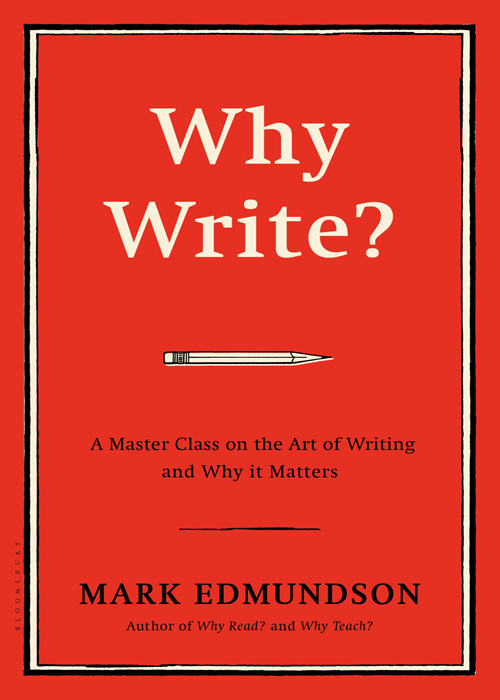
Why Write?
A Master Class on the Art of Writing and Why it Matters
کتاب های مرتبط
- اطلاعات
- نقد و بررسی
- دیدگاه کاربران
نقد و بررسی

May 23, 2016
In a book that reads like lectures notes for a meandering college course, Edmundson (Why Teach?), a professor at the University of Virginia, attempts to answer the question of why, in an era of diminishing readership and an increasing number of entertainment options, one might choose to become a writer. Organized around different answers such as “to get even” and “to grow,” the book is filled with anecdotes about canonical writers, along with personal stories from the author’s writing and teaching career. Edmundson is adept at finding quotes and telling tales from the English romantic poets, Greek philosophers, and American transcendentalists, but his examples rarely stray outside Europe and North America. The book has a penchant for broad pronouncements about the literary canon—“Is it possible to be a writer in America and not have dropped all the way into Melville or Dickinson, the prophet Whitman or Emerson”—and the habits of “real writers” and who they may be. Though the prose is easy to read, chatty, and sometimes amusing, the book’s unexamined Western-centric perspective may leave some readers feeling that Edmundson’s message doesn’t apply to them. Agent: Sam Stoloff, Goldin Literary Agency.

June 1, 2016
The wisdom of dedicating one's career to professional writing is often questioned, and Edmundson (English, Univ. of Virginia; Why Read?) intends to dissuade such arguments quickly with his latest work, an in-depth analysis of the positivity of literary pursuits. Chapters contain insightful passages on the art of writing from masters such as Emily Dickinson. This is not a how-to guide but instead a how-to embrace and develop the ability to compose well. A note of caution to the beginning writer: the life of an author has its perils, and Edmundson shares examples of these frequently; even Walt Whitman and John Keats faced criticism from peers, editors, and the media. Thankfully, the reviews are not always negative, and favorable feedback can be rewarding. In closing, Edmundson encourages aspiring writers to find equal satisfaction in discovering their way to words. VERDICT This informative and entertaining read will delight those interested in the writing process from an academic perspective.--Angela Forret, Clive P.L., IA
Copyright 2016 Library Journal, LLC Used with permission.

June 1, 2016
Do we really need another book on writing? Maybe. Edmundson (English/Univ. of Virginia; Self and Soul: A Defense of Ideals, 2015, etc.) previously published Why Teach? and Why Read? His latest is as much about reading as writing. He covers some "lightly drawn" autobiographical material and a little how-to (he's especially good on the importance of a writer finding his/her voice), and he offers plenty of encouragement. This book is very much a pep talk. The author is an optimistic, enthusiastic cheerleader on the sideline, encouraging us to sit down and try. Along the way, he enlists as co-cheerers other writers, mostly the older, usual suspects: Shelley, Byron, Austen, Melville, Joyce. But he also manages to recruit Roth and Kerouac and others. Jonathan Franzen's The Corrections "rang the bell," while David Foster Wallace's Infinite Jest "slammed down the hammer." Edmundson warns budding authors: it's lonely, it's hard, and it can be depressing, but it's "one of the best acts a human being can turn his hand to." It brings pleasure and its own rewards, and it can be a "spiritual discipline" like meditation or even prayer. The author tends to get repetitive during the course of the book, repeating some version of the idea that "writing is about writing." Publication isn't the goal; writing is: "writing is thinking; thinking is writing." Try writing a memoir; it's the "genre of our moment." Writers must read (a lot) and be willing to revise (a lot). In this and other areas, Edmundson sounds like Stephen King. Even though his own books have been fairly well-received, he's pretty harsh on book reviewers. Those critics who are wannabe writers will sometimes "clasp your book in their hands, embrace it, and then slap you across the face." This has been done better by others, but it's never a bad thing to encourage reading and writing.
COPYRIGHT(2016) Kirkus Reviews, ALL RIGHTS RESERVED.

























دیدگاه کاربران